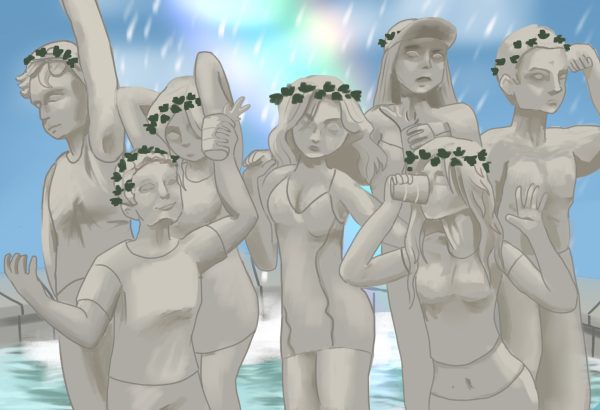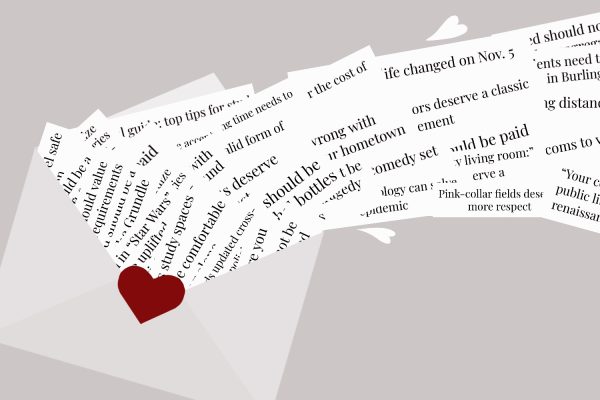On Islam and open speech
With the recent murder of Stephane “Charb” Charbonnier, editor of the popular French satirical magazine Charlie Hebdo, Western culture has been thrust into a discussion about the limits of free speech, the rights of religious groups and whether or not criticism of Islam should be labeled as “Islamophobic.”
Charbonnier was murdered alongside seven colleagues, two police officers and two other people by Islamist extremists due to Charb’s cartoons which depicted Muhammad in a derogatory manner.
I will not try to defend the cartoons created by Charlie Hebdo. I will agree that the cartoons were not at all humorous and were produced with the sole purpose of offending particular groups of people.
It is a rather unfortunate case that this is the example we are given of someone representing free speech, as it paints the picture that those who suffer the consequences of Islamic terrorism only suffer them because they had committed the most severe offenses against Islam.
In other words, the general sense given is that one has to go to the extreme in offending Islam in order to be placed under the gun. Though this may be public sentiment, it is simply not true.
Examples from an array of cases show how even the most moderate opponents to Islam have been threatened, attacked and killed, without having committed such morbid offenses in the first place.
Indeed, the only thing needed to be threatened by these people is not necessarily to draw an offensive cartoon of their beloved prophet, or to call them names, or to regard them as uncivilized. One only has to say “I disagree with Islam.”
If one’s voice is loud enough and has enough influence, they will be placed under the threat of violence under these Islamic extremists, and this is something that cannot be denied considering recent historical facts.
Consider the filmmaker Theo van Gogh, a descendant of the great painter, who made a short film displaying the mistreatment of women in various Islamic countries, called “Submission.” The documentary, though critical of Islam, was not especially offensive in the way Charlie Hebdo was.
Van Gogh was shot eight times and his murderer attempted to decapitate him, cutting his throat with a large knife that contained a threat to Ayaan Hirsi Ali, a participant in the short film and an outspoken opponent of Islam.
Hirsi Ali is one of the best examples of respectful opponents of Islam.
Her criticism comes from her personal experience living in Somalia, and is not directed in a hateful or offensive manner toward Islam, but rather in a constructive manner, urging people to understand the human rights violations committed by so many Muslim regimes and extremists.
She has received death threats so frequently that she had to be issued a higher security detail.
Hirsi Ali was also placed in al-Qaida’s Inspire magazine as someone “wanted dead or alive for crimes against Islam,” along with Charbonnier, Flemming Rose — the commissioner of the Danish Muhammad cartoons — and Salman Rushdie, author of “The Satanic Verses,” a fictional work that offered an alternative view on Muhammad and the Quran.
Rushdie was also the target of a fatwa calling for his death by Ayatollah Khomeini, the supreme leader of Iran, not for going out of his way to offend Islam, but for producing a work of fiction.
We should consider the facts. Whatever the reason may be, and this is not an endorsement of Christianity, but no one today would think of murdering someone for saying they hated Jesus, or for depicting the pope in an offensive cartoon.
We haven’t had to watch the live funerals of the creators of “South Park” or “Family Guy” for slandering Christianity and Judaism as they have repeatedly done.We all know that this is true.
To be critical of Islam for both its religious content and for its vast numbers either involved in — or in support of — terrorism and the constant repression of both non-Muslims and different types of Muslims, is merited by fact and should not be considered the views of a bigot or racist.
The Quran, which commands members of Islam to murder non-Muslims on a consistent basis, is not something which should be allowed to avoid criticism simply due to Islam’s large population.
The fact that the majority of Muslims are good people does not mean that we are to ignore the offenses of both Islam’s holy texts and its members who truly follow them.
The crimes committed by Islam and many of its leaders and rogues are not to be ignored in favor of a distorted and stupid view of tolerance.






